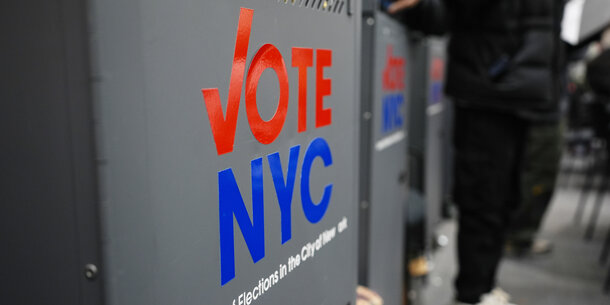Michigan is emerging as a laboratory for the pro-democracy movement. Since 2018, when voters there enacted significant reforms to expand access to voting and make district maps fairer, the state has been busy passing more constitutional amendments and legislation to further expand access to the franchise. At a moment when other state legislatures, out of step with their own constituents, are making it more difficult for citizens to participate in democracy, Michigan stands out as a model for the rest of the country.
Between 2013 and 2018, Michigan did not enact any pro-voter laws. Then, voters frustrated by the inaction of a gerrymandered legislature took matters into their own hands. In the 2018 midterms, they overwhelmingly approved a pair of constitutional amendments on the ballot: Proposal 2 shifted the power to draw the state’s congressional and legislative districts from the state legislature to an independent redistricting commission. And Proposal 3 established automatic voter registration, same-day voter registration, and no-excuse absentee voting, among other reforms. These successful measures, fueled by pro-democracy fervor, delivered tangible change in the form of increased access to the ballot box and fair maps. And the improvements didn’t end there.
In the next midterm cycle in 2022, Michigan voters once again turned to direct democracy to approve a crucial slate of voting reforms. With nearly 60 percent of the vote, a constitutional amendment ushered in at least nine days of early in-person voting, expanded availability of ballot drop boxes, prepaid postage for mail ballots, and a permanent absentee voter list, among other changes. Since the 2020 election, when the pandemic fundamentally changed the primary method for voting, mail voting has remained a popular option for Michigan’s voters.
Among the other reforms enacted by 2022’s Proposal 2 was a clarification to the election certification process, an often overlooked procedural step through which state and local election officials sign off on the accuracy and completion of election results. While little attention was previously paid to states certifying an election, that all changed in 2020. Former President Trump’s lies about the election being “rigged” inspired two county board officials in Wayne County, Michigan, under pressure from Trump, to briefly refuse to certify the votes of more than 800,000 voters in Detroit and surrounding areas. The county’s presidential election results were ultimately certified.
Two years later, Michigan voters responded to the disruption by enshrining in the state constitution that the duty of certifying election results is “ministerial, clerical, [and] nondiscretionary” — foreclosing on any future attempts to interfere in a legitimate election.
In approving this series of ballot measures, Michigan voters spelled out their priorities to expand democracy and safeguard free and fair elections. And with a new, independently drawn map in place following the 2020 census, they elected a new legislature in 2022. That legislature, less skewed by partisan bias and more aligned with voters’ preferences, responded.
In 2023, Michigan lawmakers adopted more pro-voter legislation than any other state, passing 12 new expansive voting laws — accounting for nearly a quarter of all such laws enacted nationwide that year. Some of these new Michigan laws implemented and built upon Proposal 2, while others created novel reforms. One automatically registers people to vote upon release from incarceration, a first-of-its kind voting rights restoration policy for people with past convictions.
State lawmakers also took steps in 2023 to increase protections for election officials, who have increasingly become the target of threats based on false claims of widespread election fraud. A 2024 Brennan Center survey found that 38 percent of local election officials report experiencing threats, harassment, or abuse for doing their jobs. To safeguard those who run and administer our elections, Michigan legislators passed legislation imposing criminal penalties for intimidating or harassing election officials.
This year, Gov. Gretchen Whitmer (D) signed into law an overhaul of the state’s recount procedures to prevent the process from being abused with frivolous claims. The law, among its numerous provisions, clarifies that “a recount is not an investigation or an audit of the conduct of an election, and a recount does not assess the qualifications of electors participating in an election or the manner in which ballots are applied for or issued to electors.”
The recent moves in Michigan bolster its defenses against a coordinated and far-reaching election denial movement that spreads falsehoods to erode confidence in our elections. These reforms ensure that voting is accessible, election subversion is further out of reach, and democracy is strengthened for decades to come. Michigan is proof that voting for democracy begets a stronger, more inclusive democracy.



